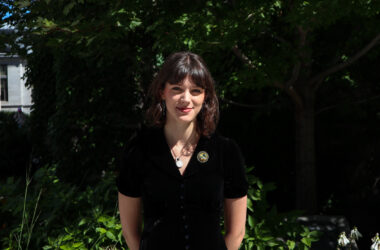If you know me, you are aware that I suffer from a serious problem—one that strains friendships, disrupts schedules, and even alters the very fabric of reality.
I am too often caught with indented lines strewn across my cheek like battle scars, my hair a knotted mess, and drool crusted near my mouth, when I should be hard at work in the library. I lose hours every week, entire days each month, to sweet, blissful unconsciousness.
I can’t help it—I love napping.
Allow me to set the scene. My feet drag as I forge through Milton-Parc, the blocks lengthening until my apartment appears like a flickering mirage in the distance. When I finally arrive, I manage to haul my aching body up the stairs, kick off my boots, and collapse onto my bed. I really should open a book and get to reading: Jacob’s Room requires my attention, as do 20 chapters of an 18th-century bildungsroman to be discussed in detail tomorrow morning.
Instead, I close my eyes. My muscles relax, from the crease between my eyebrows and the tension just above my shoulder blades, down to the knot in my stomach. I am like one of those mattresses you order online that comes vacuum sealed, the kind you have to throw in a corner and let expand for a couple of days. I let out a final exhale and drift into a limitless escape.
Napping is not thought of as a productive pastime. Instead, it is seen as lazy—the act of a slacker who lacks motivation or a procrastinator aiming to avoid afternoon obligations. However, while the body rests during sleep, the brain remains active.
As an English major, I spend considerable time pondering literature’s role in escapism. Reading permits the mind to wander outside the confines of the reader’s physical reality; they journey to new spaces and lives by accessing the depths of their imagination.
Is napping any different? It allows the mind to explore, unrestrained by consciousness.
Sleep offers the mind freedom it cannot experience while awake: Freedom from laws of rationality and physics. Time warps and stretches during sleep, growing thin and sticky like taffy. Two hours pass like two minutes—or two years. I have dreamt of giving birth and raising a child into adulthood, only to wake and find that I have been resting for a mere segment of the day.
Of course, I am not the first to consider the nature of dreams.
Sigmund Freud called the interpretation of dreams “the royal road to a knowledge of the unconscious activities of the mind.”
In one of many diaries, Virginia Woolf wrote, “I will dream today; for I must unscrew my head somehow.”
Woolf cannot be called mentally well, and Freud was on his fair share of powdered stimulants. Still, these famous thinkers nonetheless concurred that dreaming provides an escape from daily life and allows access to paths otherwise untrodden.
Shakespeare, who crafted an entire play about the mysterious happenings of dreams, would surely agree. In A Midsummer Night’s Dream, fairy trickster Puck even tells the audience to reflect on the performance as a dream if they struggled to comprehend the extraordinary events that occurred: “Think but this and all is mended, / That you have but slumber’d here / While these visions did appear.” Like literature, sleep breaks down boundaries and enables cognitive exploration.
Overnight sleep serves a function: To rest and rejuvenate the mind and body for the coming day. It is a part of daily order, a logical ritual.
Napping, however, is not a basic need. Instead, this form of sleep is an intellectual pursuit; it demonstrates a belief in the expansive, generative power of the unconscious.
Next time you make the endless odyssey home from class, pause before pulling up your endless list of readings and allow yourself the freedom to relax. Flop onto your bed. Kick off your shoes. Close your eyes and let your mind wander. I hereby grant you permission to do the unthinkable, the slothful, the temporizing: Take a nap.
Only when napping can your mind break free from inhibition and explore the depths of consciousness, perception, and imagination. Sleep, not to rest, but to dream.







